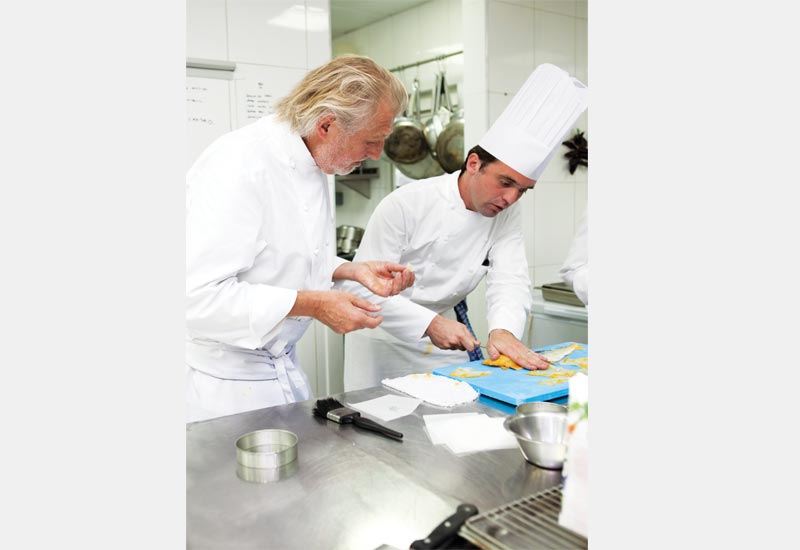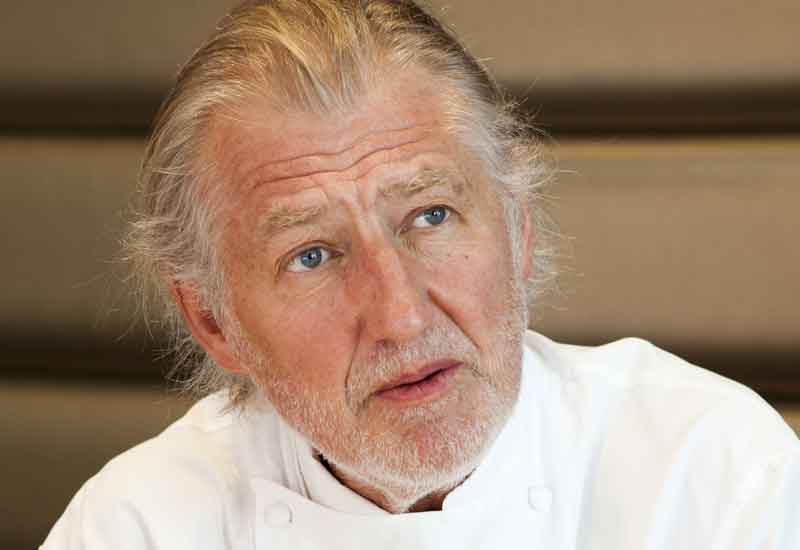 There is no 'star dish', asserts Biles; the menu is changed or adapted everyday offering great variety.
There is no 'star dish', asserts Biles; the menu is changed or adapted everyday offering great variety.
The first hurdle
Establishing the supply chain in Dubai was the first challenge and Biles says it took 18 months to two years to ensure he could get every ingredient he wanted.
Two of the restaurant’s main suppliers are Classic Fine Foods and Fresh Express, and Biles commends both, but sourcing product still consumes a lot of the chef’s time.
“For me this is the biggest [draw] on my time; the sourcing and the quality of the product. It’s 80% of my time, out of my service time which is already four hours at lunch and four hours at dinner.

| Advertisement |
But I spend my life on the phone. I think I spend one hour and a half per day just to check the product, what is the price in Paris, what is in season, so we try to follow the French season.
For example, I have been waiting for asparagus for four weeks now, as it’s too cold in France and the few asparagus that [are available] are going into Paris.
We cannot manage all the suppliers, they tell us there is some from Chile, from Australia, but I am waiting for some from this small village and I won’t cook any from anywhere else,” asserts Biles. This is partly why the menu is so subject to change, with the team learning new menus in matter of minutes.
“There is not a star dish. When one dish is finished we move it. As soon as a dish is perfect, what’s the point of keeping it any more?” proffers Biles.
“We adapt or change, every day we print a new menu. Sometimes you have items that only last only a few weeks, like smaller berries. So we get one importation and we do it for two weeks and we change again,” says Biles.
“It’s good for regular guests because it doesn’t get boring. We try to fit with the French season to the maximum. For example, the sea urchin season will finish in two weeks, we could follow from Australia, sea urchins from Australia are not bad, we could do it, but for our guests we try to keep one identity.
They know that when they come here in winter they know they will eat a French black winter truffle, and it will not be a truffle from China or somewhere,” he asserts.
Gagnaire nods along, his respect for his head chef apparent, as he emphasises the importance of establishing that bond with Reflets’ customers that Biles alludes to.
“They come for the food, not for the show. It’s the same in all the restaurants that I work in across the world. You build the relationship with the guest. We call it friend-guest. There are many people when they leave the restaurant, they kiss Olivier because they love him,” says Gagnaire. And when it comes to produce, the only factor limiting chefs is themselves, he continues.
“The limit is not the price, the limit is our limit — our limit is to offer an acceptable price for the menu, because if you are too expensive, people won’t come back,” says Gagnaire. “[The challenge is] to understand the city, to understand the problem of transport, you must manage the produce, because we try to always have fresh produce. We must work with that,” he adds.
Article continues on next page ...









 Search our database of more than 2,700 industry companies
Search our database of more than 2,700 industry companies









